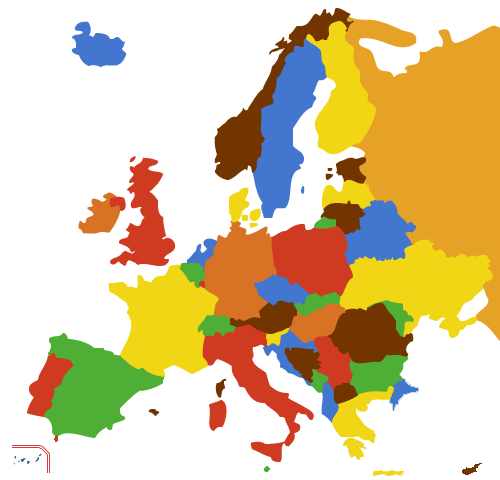Lately, the issue of well known mark’s protection has become a darling of the ECJ. In latest case, the ECJ is called to answer on the scope of protection of art. 6bis. In my view here the ECJ has a great opportunity to set some quite important principle which would greatly benefit registered trademark owners, as explained better at the end of this brief note (so that one must read it through!).
benefit registered trademark owners, as explained better at the end of this brief note (so that one must read it through!).
The ECJ was posed the following question: must the concept of well known mark in a Member state –as provided for by art. 4(2)(d), of Directive 89/104- be analyzed and found exclusively with reference to the degree of knowledge and diffusion in a Member state or significant part thereof, or can it also be linked with a lesser territorial extent, such as an autonomous province, a region or even a city, in accordance with the goods or services designated by the mark and the public of reference?
The Advocate General (AG) has now delivered his opinion. The AG first reviews the interpretation and scope of art 6bis. Art. 6bis allows the owner of a well known trademark registered in another Union state, to oppose a third party’s subsequent registration in a different member of the Union where the earlier mark is renown even though has not been registered yet. The rationale would be to discourage unfair registrations caused by the renown of the earlier unregistered (but either already used or advertised or promoted) well known mark. Apparently the rule should only work for “foreign” trademarks. However, the AG wonders whether or not art. 6bis (and other Convention rules) provide for minimal standards which may apply also for purely internal situations.
The question is intriguing but the AG does not think it is necessary to give it an answer. In fact, independently from the answer, the AG notes that since the treatment of unregistered trademarks has not been harmonized in the European Union, it is not appropriate to impose the member states the obligation to grant the protection ex art. 6bis also in case of purely internal situations. Therefore, having also examined the relationship between the Paris Convention and the European Union (which is not a contracting party of the latter) the AG says that in order to solve the issue, reference to art. 6bis is not necessary.
The AG observes that since the Directive has left to the Member states the discretional power to provide protection to unregistered trademarks, nothing prevents that, art. 4(2)(d), might be interpreted as allowing that an earlier unregistered trademark, used and enjoying renown not allover a Member state or in a significant part thereof but in a much smaller territory may be an obstacle to registration and use of a subsequent trademark (obviously if such protection is granted by the internal legislation).
Now, many may at this point be thinking -to paraphrase a very well known/famous quote from a famous movie: “Frankly, my dear, I don't give a damn”. It is indeed quite difficult to understand what the relevance is of this case (save to clarify the seemingly confused ideas of a Spanish Judge, who was possibly just trying to escape his/her duties and thought it smart to refer the case to the ECJ).
Well, if you think that both the AG and the ECJ stipends are paid by us, EU taxpayers, I can only think of one possible outcome which would justify this waste of time and money: that (unlikely) the ECJ “overrules” the AG and says that art. 6bis does not only applies for foreign trademarks (in the sense explained above) but also to internal marks. Accordingly, unregistered marks can only be protected in EU member states only if they have a renown which extend to the whole Country or significant part thereof. Otherwise they cannot oppose registration and use of subsequent trademarks. A decision in these terms would greatly help trade mark owners who are experiencing more and more the extreme difficulty of finding available terms and who must also face the uncertainty of ever increasing (but misguided) protection granted to unregistered rights. This would really be grand!!! But don’t hold your breath…






Nessun commento:
Posta un commento